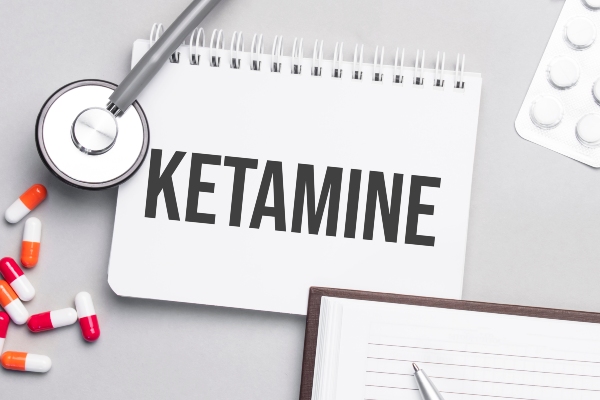 Not everyone responds to traditional depression treatment like antidepressants. For those with treatment-resistant depression, a psychiatrist may prescribe ketamine therapy, as it has shown to be effective in those who cannot find another way to reduce their symptoms. Although this therapy is beneficial, it is generally not used as an initial treatment, and there are criteria a doctor uses to recommend it.
Not everyone responds to traditional depression treatment like antidepressants. For those with treatment-resistant depression, a psychiatrist may prescribe ketamine therapy, as it has shown to be effective in those who cannot find another way to reduce their symptoms. Although this therapy is beneficial, it is generally not used as an initial treatment, and there are criteria a doctor uses to recommend it.
Information about ketamine
Ketamine has been around for decades and was originally FDA-approved as an anesthetic. However, doctors have used it for a myriad of other reasons, including chronic pain, anxiety, bipolar disorder, obsessive-compulsive disorder, post-traumatic stress disorder, and depression.
Two types of ketamine are used for patients with depression. Racemic is an infusion and is used off-label. Esketamine is a nasal spray, and the FDA has approved it for use as a depression treatment.
Ketamine therapy works faster than antidepressants, which means the patient notices relief sooner and usually needs fewer sessions. It is mostly used for treatment-resistant depression.
How a psychiatrist decides to prescribe ketamine therapy
As with most medications, ketamine therapy is not recommended for every patient. A doctor will spend quality time with a patient to determine if it is the right treatment option.
Mental health evaluation
The first thing the psychiatrist will do is conduct an evaluation. The initial part includes an interview with the patient. One question will be about symptoms so it can be determined that the patient in fact does have symptoms and signs related to depression. Other questions may be related to the patient's medical history, family history of depression, traumatic events or situations that may have triggered depression symptoms, lifestyle, and medication use.
A physical exam will often be conducted, as some medical issues can cause symptoms of depression, and that may need to be addressed first. The psychiatrist may determine that lab tests are needed to check levels of hormones or drugs in the system.
Previous depression treatments
The patient will also be asked about previous treatments tried. Ketamine therapy is usually not recommended unless a patient has tried one or more antidepressants and has not seen results. As therapy is often another treatment method, the doctor will ask about the types of therapy tried and the number and frequency of sessions.
If this is a patient who has not tried any method previously, there is a good chance alternative treatments to ketamine therapy will be recommended first.
Contraindications
Even if a patient is dealing with treatment-resistant depression, he or she may still not be a good candidate. Ketamine therapy is not recommended during pregnancy, for those with cardiovascular disease, for those with a history of psychosis, or for individuals struggling with substance abuse.
Conclusion
Ketamine therapy can be effective for those who have struggled to find an effective treatment method for depression. However, a psychiatrist will do a thorough assessment to ensure a patient is a good candidate.
If you have been unable to reduce depression symptoms with traditional treatment methods, ketamine therapy may be for you. Contact our office to set up an appointment with a psychiatrist to see if it is a potential treatment method for you.
Request an appointment or call Future Psych Ketamine Clinics at 843-788-9718 for an appointment in our Myrtle Beach office.
Recent Posts
Fibromyalgia treatment has become an important focus in helping patients effectively manage the widespread and often challenging symptoms of this condition. While fibromyalgia can involve chronic pain, fatigue, and cognitive disruptions commonly known as brain fog, there are now more tools than ever to support those affected. With a growing understanding of the condition, treatment…
Psychedelic therapy uses specific substances in a controlled, therapeutic setting to support mental and emotional healing. It has gained attention for its potential to help people struggling with conditions like depression, anxiety, and post-traumatic stress disorder (PTSD) — especially when other treatments have not helped. This kind of therapy is always done under professional guidance…
Many people think psychiatrists only help with diagnosing and treating mental disorders, but they can also aid those with chronic pain. They focus on both the physical and emotional sides of pain. With personalized care, psychiatrists can give patients useful tools and strategies to manage their symptoms and improve their quality of life.Per the Cleveland…


